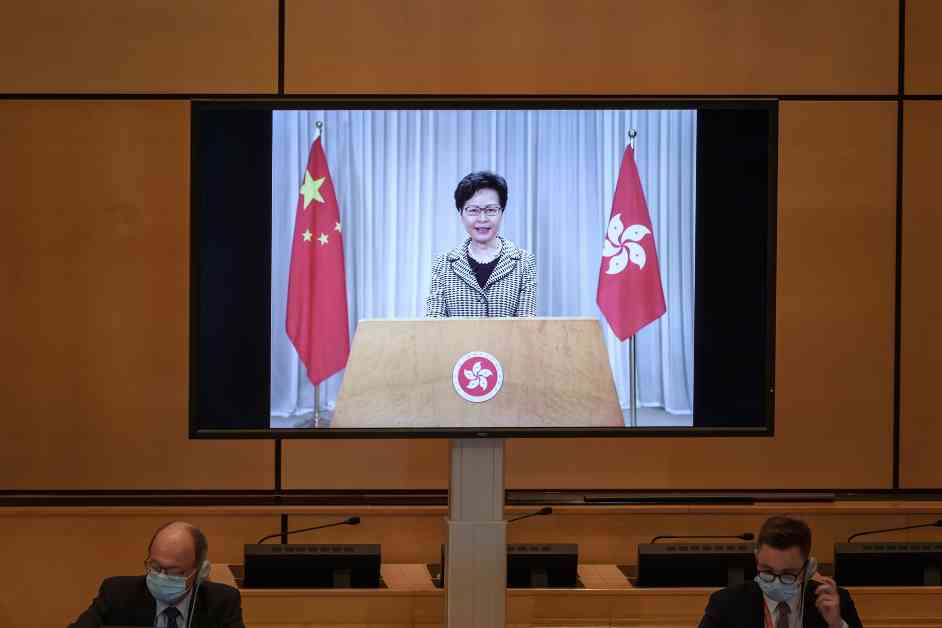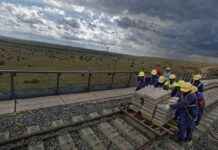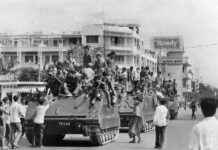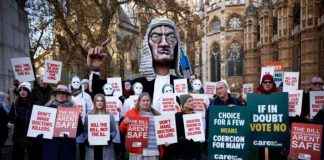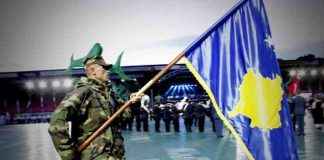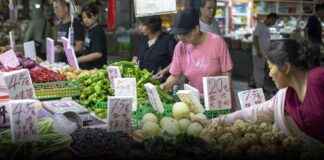Hong Kong Asserts Its Voice and Identity at the United Nations
Last May, tensions ran high at a meeting room in Geneva as a delegate from Hong Kong challenged the credibility of civil society organizations during a session on discrimination against women in China. The delegate, Shirley Lam, Permanent Secretary for Home and Youth Affairs, launched a scathing attack on NGO submissions, accusing them of spreading false information and distorted narratives about the situation in Hong Kong. This incident marked a significant shift in the behavior of Hong Kong representatives at the United Nations, reflecting a more assertive and combative stance that aligns closely with the Chinese government’s approach.
The Shift in Hong Kong’s Posture at the UN
The shift in Hong Kong’s posture at the UN can be traced back to the passage of the Hong Kong National Security Law in 2020 by the People’s Republic of China. While Hong Kong does not have official independent status within the UN network and typically participates under the umbrella of the PRC, the implementation of the NSL has prompted Hong Kong delegates to adopt a more proactive approach in defending Beijing’s policies and values on the international stage. This departure from their previous restrained behavior has raised concerns about the erosion of Hong Kong’s distinct voice and identity within the UN system.
From Restraint to Aggression: The Evolution of Hong Kong Delegates
In recent years, Hong Kong delegates at the UN have transitioned from being passive observers to active proponents of the PRC’s agenda. This shift is exemplified by their adoption of a “wolf warrior” attitude, characterized by confrontational rhetoric and a disregard for dissenting voices. At UN reviews, Hong Kong officials have displayed a willingness to challenge NGOs, UN experts, and critics of Beijing’s policies, using tactics reminiscent of mainland Chinese delegates. This aggressive behavior not only undermines the credibility of Hong Kong’s representation at the UN but also raises questions about the extent to which the HKSAR is willing to align itself with Beijing’s authoritarian stance.
The heightened confrontational approach taken by Hong Kong delegates has been evident in their responses to criticism and recommendations from UN bodies regarding the National Security Law. In instances where UN committees have expressed concerns about the impact of the NSL on human rights, the HKSAR has vehemently rejected such assessments, dismissing them as “unsubstantiated criticisms” and accusing the committees of politicizing their work. This pattern of deflection and denial reflects a broader strategy by the HKSAR to discredit UN findings that challenge the official narrative promoted by Beijing.
The Role of Civil Society and the Challenge of GONGOs
As Hong Kong delegates amplify their support for the PRC’s agenda at the UN, the space for genuine civil society participation is increasingly under threat. The HKSAR has sought to undermine the influence of independent NGOs by establishing government-organized NGOs (GONGOs) that echo the official line of the government. By accrediting these GONGOs at the UN and allowing them to submit “independent” reports, the HKSAR effectively controls the narrative presented to UN bodies, silencing dissenting voices and promoting a sanitized version of human rights in Hong Kong.
The rise of GONGOs poses a significant challenge to civil society organizations like Hong Kong Watch, which face obstacles in obtaining accreditation and are subjected to scrutiny and harassment by HKSAR delegates. The erosion of civil society space in Hong Kong, exacerbated by the NSL, has forced NGOs to operate from abroad and face criticism from the government for their external location. This crackdown on dissenting voices underscores the broader trend of authoritarianism in Hong Kong and the erosion of democratic freedoms under Chinese rule.
In conclusion, the evolution of Hong Kong’s representation at the United Nations reflects a troubling trend of increased alignment with Beijing’s authoritarian agenda. The shift from restraint to aggression, the adoption of confrontational tactics, and the suppression of civil society voices all point to a broader strategy aimed at consolidating control and stifling dissent within the international arena. As Hong Kong delegates continue to echo the PRC’s rhetoric and tactics at the UN, the future of Hong Kong’s distinct voice and identity within the global community remains uncertain.
